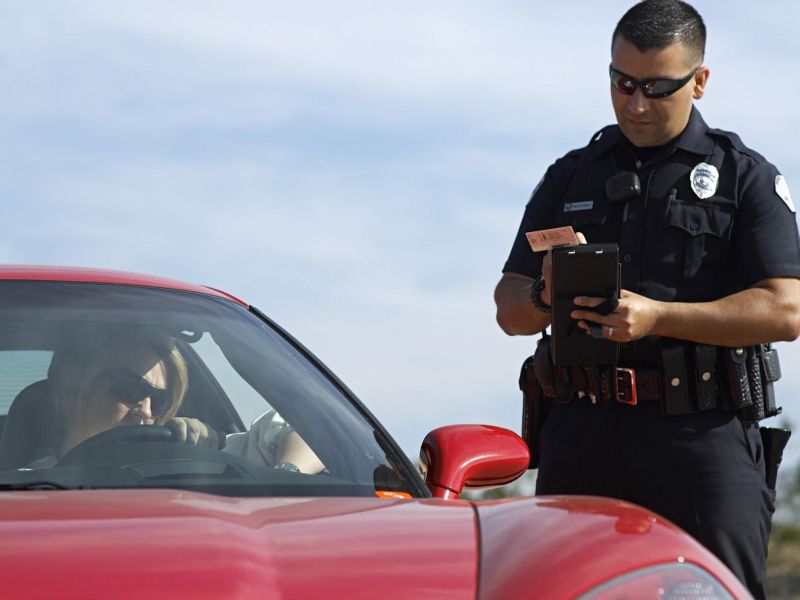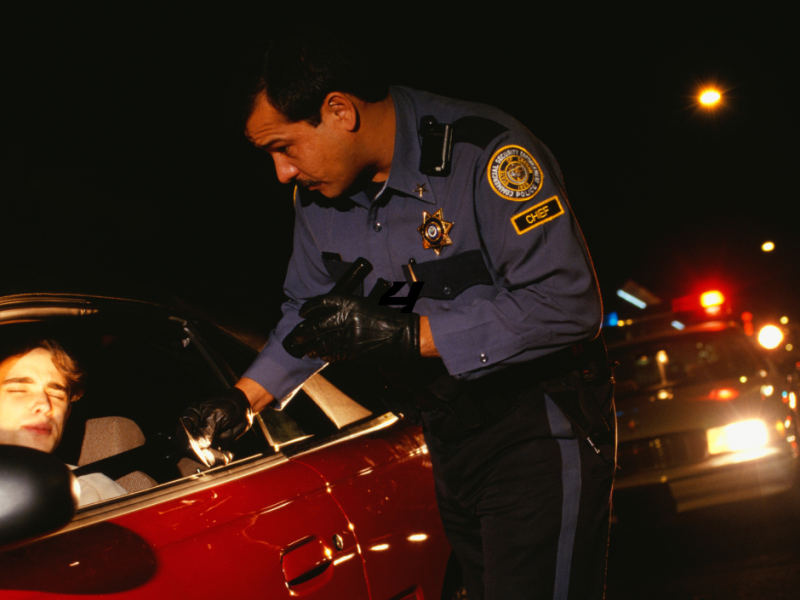
— Speeding
Street Racing Ticket
To foster road safety, the majority of states have implemented laws prohibiting dangerous driving. Included in this category are street and drag racing and other boisterous maneuvers, such as spinning donuts and peeling out, which involve excessive speeding on roads. Find out what a street racing ticket is, learn the offense’s penalties, understand the legal process surrounding this violation, read some tips for avoiding these tickets, and learn how an experienced Virginia traffic law attorney can help individuals facing this charge; call Driving Defense Law today at (757) 929-0335 to speak with our legal team.
What Is a Street Racing Ticket?
According to §46.2-865 of the Code of Virginia, street racing is an illegal act in Virginia falling under the umbrella term of reckless driving, which refers to aggressively driving a motor vehicle in a manner that wantonly or willfully disregards the safety of property or individuals. In the Commonwealth of Virginia, anyone participating in a race involving a minimum of two vehicles on public highways, driveways, and premises (including schools, churches, businesses, or recreational facilities) engages in street racing, unless the property owner (or the owner’s agent) authorizes the act. Per the National Library of Medicine (NLM), street racing fatalities are more likely to take place on urban roads compared to other motor vehicle fatalities and typically occur at high speeds.
What Are the Different Criminal Charges for Street Racing?
In Virginia, street racing is either a felony or misdemeanor offense; the circumstances of the case usually dictate the type of charge brought. Misdemeanor street racing typically relates to the act of racing itself, whereas felony charges can occur if the racing results in a person’s injury or death.
What Are the Penalties for Street Racing?
The penalties for street racing vary depending on the type of charge. For a street racing Class 1 misdemeanor, which involves traveling over 85 mph or 20 miles more than the advertised speed limit, an individual can potentially face a maximum fine of $2,500, up to a year in jail, and possibly a lasting criminal record. A street racing offense that leads to someone’s injury, resulting in a Class 6 felony charge, comes with harsher penalties, with a maximum fine of $2,500 and a maximum jail time of five years; if the racing leads to an individual’s death, this is also a felony and brings even more severe penalties, with a minimum jail time of one year and a maximum jail sentence of 20 years.
In addition to criminal penalties, if an individual participates in an organized race, the state may confiscate their vehicle. Furthermore, street racing can lead to license suspensions, either as a result of the judge imposing a suspension or because the Department of Motor Vehicles (DMV) suspends the license after the motorist receives too many points; if a license suspension occurs, it ranges between six months and two years for misdemeanor offenses and one and three years for felony offenses. Learn more about the law concerning a street racing ticket, and discover how a seasoned Virginia traffic law attorney from Driving Defense Law can assist with fighting this type of traffic violation; contact our firm today to organize a consultation.
Determining Proof of Street Racing Charges
For a court to convict someone of street racing, the prosecution must demonstrate that a race occurred. When making this determination, the court takes into account various factors, such as the time of the incident, the number of people present, and weather conditions. Additionally, they consider whether the driving exceeded mere negligence, whether the driver willfully participated in the race, and whether the individual’s actions compromised other people’s safety.
To acquire proof of racing, police officers may attempt to get the motorist to admit they were racing or the state may rely on circumstantial evidence indicating that a race took place. For instance, in the case of Doggett v. the Commonwealth of Virginia, the Virginia Court of Appeals highlighted that a motorist’s conduct may infer they were racing, with example strong circumstantial evidence of racing including the following:
- Using driving maneuvers to stay ahead of other motorists
- Driving the vehicle directly next to other racers
- Starting quickly from a light
- Knowing the other racers
- Consistently steering over double yellow lines
Legal Defenses Against Street Racing Charges
A common legal defense against street racing charges is that two vehicles driving close by to each other at high speeds are not necessarily participating in a race. The state must prove that the accused was racing, and a lack of strong circumstantial evidence is unlikely to convince the court of this. In light of this, legal defenses typically focus on highlighting that the prosecution has failed to prove that racing definitely occurred.
Tips for Avoiding Racing Tickets
Avoiding racing tickets helps motorists keep their driving records clean and avoid the substantial legal consequences of street racing offenses. With this in mind, here are some tips for reducing the chances of a police officer issuing an individual with a racing ticket.
Adhere to Speed Limits
A key component of a street racing charge involves excessive speeding. Speed limits exist in the first place to ensure road users’ safety, and exceeding these limits can lead to severe accidents and even fatalities. By adhering to speed limits, motorists can reduce their chances of getting a racing ticket while contributing to safer driving conditions for all.
Avoid Risky Situations
Another way of avoiding racing tickets entails staying away from risky situations that can lead to these violations, such as known street racing areas or places where racing events are taking place. Doing so reduces the temptation to participate in the race and gives the police little reason to issue an individual with a racing ticket.
Be Aware of State Laws
Street racing charges vary between states, making it vital for motorists to be aware of local laws to help avoid violating these regulations unintentionally. Staying informed of local racing regulations can reduce the chances of getting a racing ticket and enable drivers to keep their license privileges.
Contact a Virginia Traffic Law Attorney Today
Street racing violations are more serious offenses than traffic tickets, potentially resulting in significant legal consequences, like license suspensions, fines, and even jail time, which can have a large impact on a person’s life. If charged with speed racing, consider reaching out to an attorney to help fight for your legal rights. Understand a street racing ticket in greater detail, and explore the legal options available to those issued with this traffic ticket by contacting a Virginia traffic law attorney from Driving Defense Law; call our firm today at (757) 929-0335.

